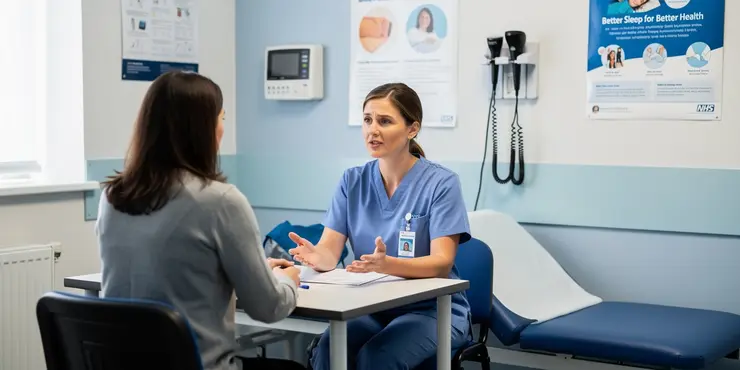
Find Help
More Items From Ergsy search
-
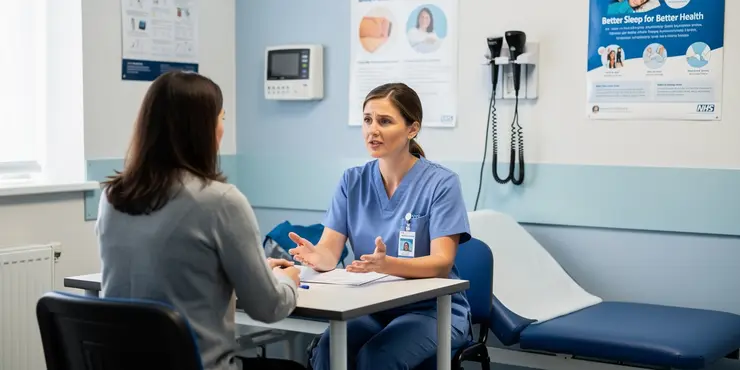
Can alcohol worsen sleep apnea?
Relevance: 100%
-
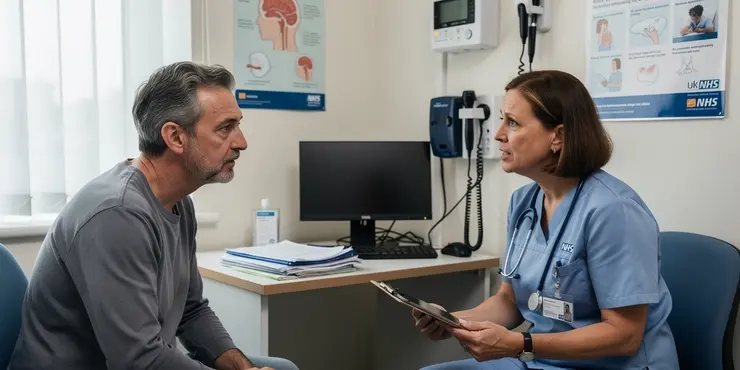
What is sleep apnea?
Relevance: 79%
-
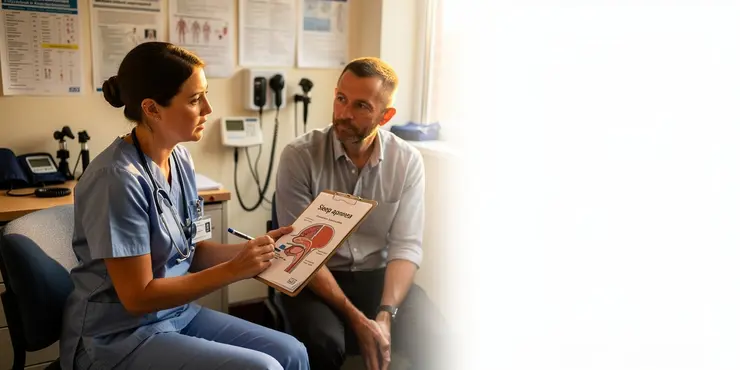
What is sleep apnoea?
Relevance: 78%
-
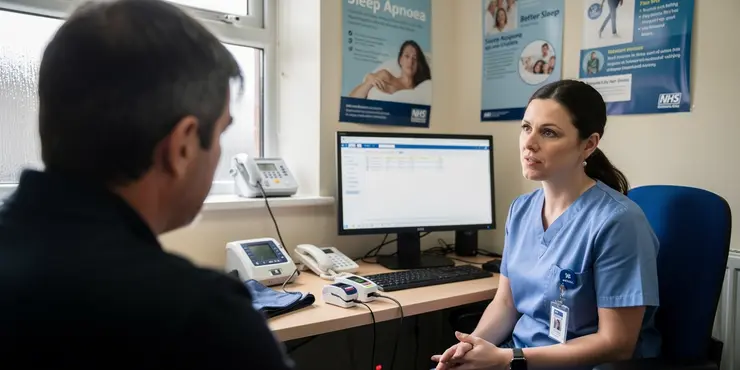
How common is sleep apnea?
Relevance: 78%
-
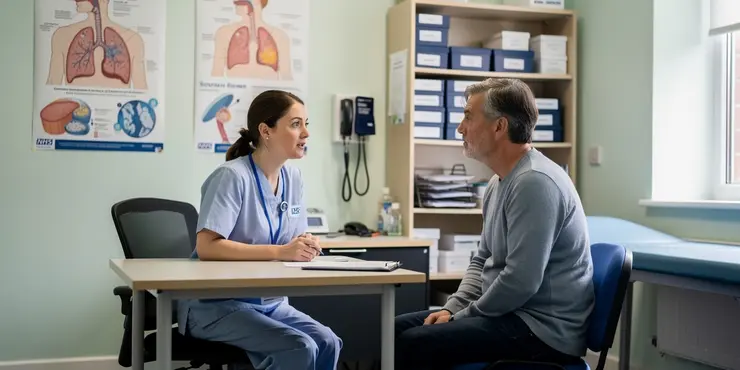
Is snoring always a sign of sleep apnea?
Relevance: 76%
-
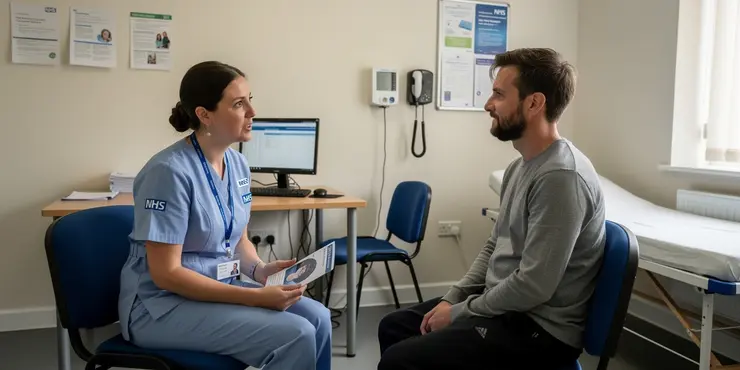
Is CPAP the only treatment for sleep apnea?
Relevance: 75%
-
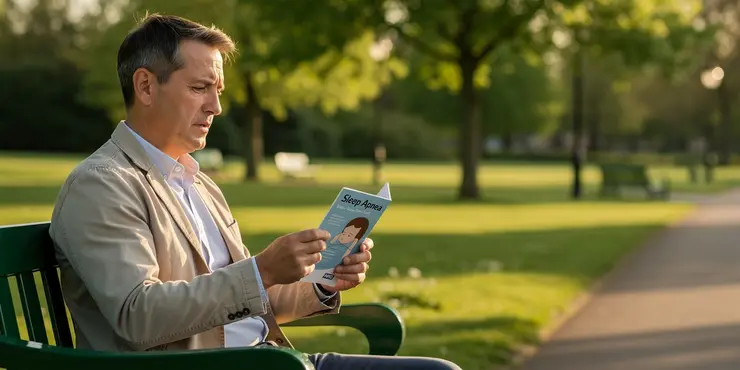
What are risk factors for developing sleep apnea?
Relevance: 75%
-
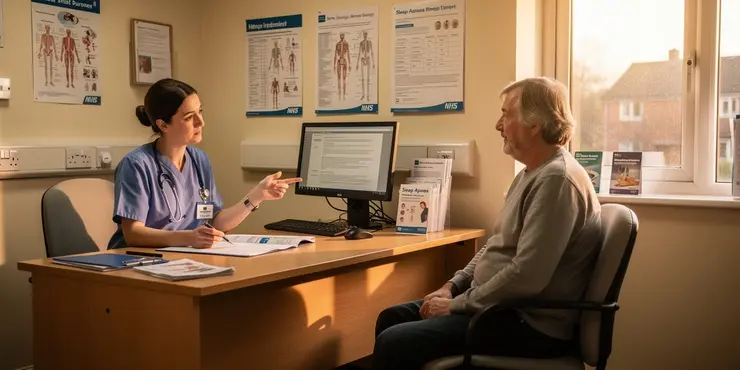
What treatments are available for sleep apnea?
Relevance: 75%
-
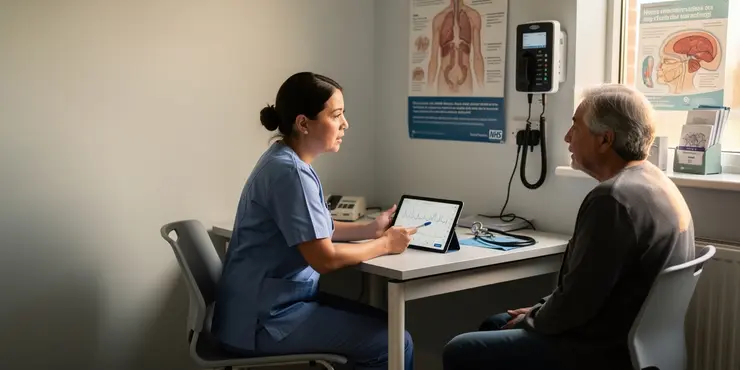
Can sleep apnea be cured?
Relevance: 74%
-
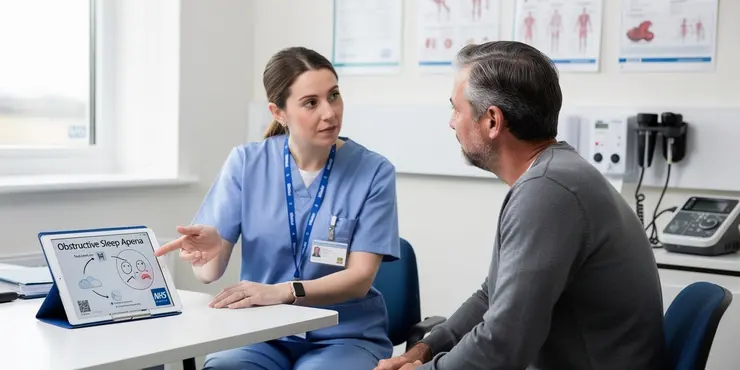
What causes obstructive sleep apnea?
Relevance: 74%
-
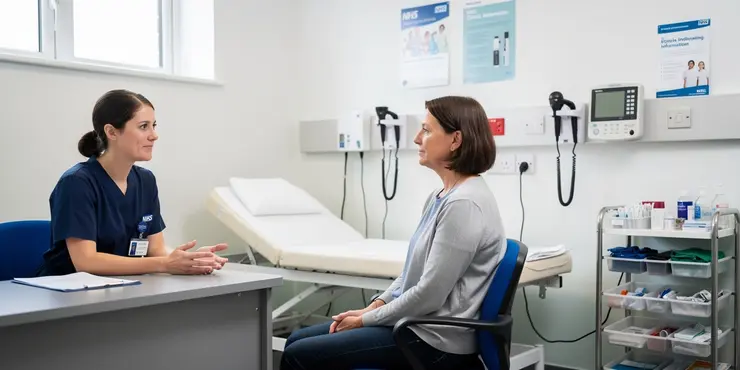
What is complex sleep apnea syndrome?
Relevance: 73%
-
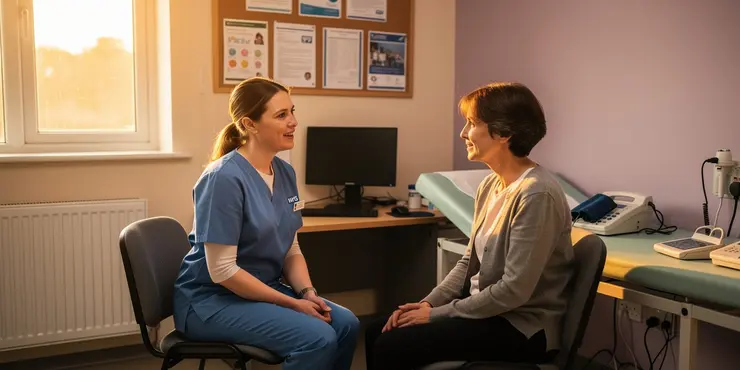
Why is sleep apnea dangerous?
Relevance: 71%
-
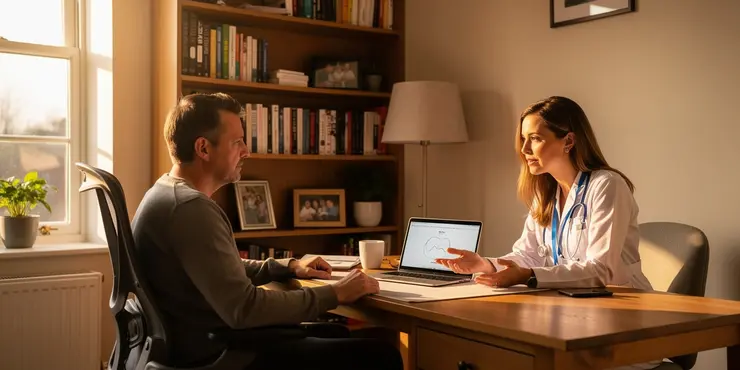
How is sleep apnea diagnosed?
Relevance: 71%
-
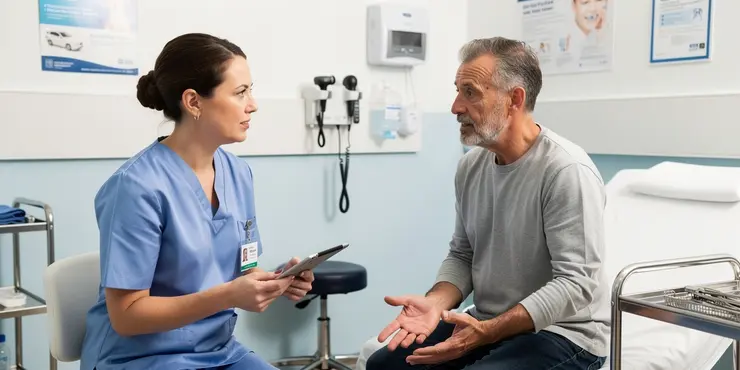
What are the main types of sleep apnea?
Relevance: 71%
-
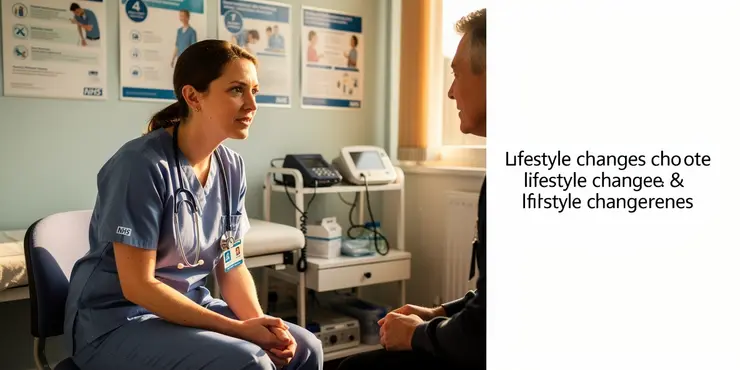
What lifestyle changes can help manage sleep apnea?
Relevance: 70%
-
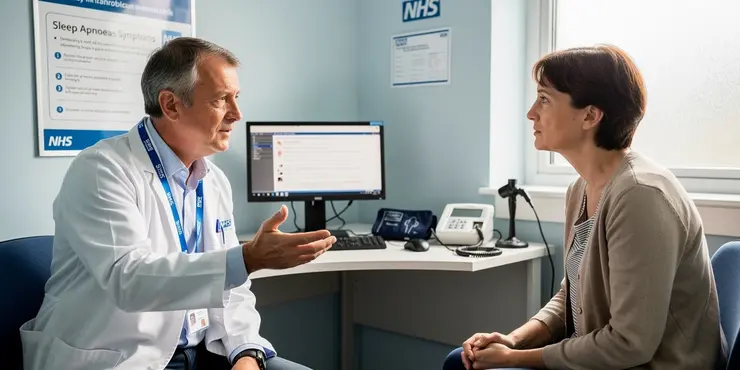
What are common symptoms of sleep apnea?
Relevance: 70%
-
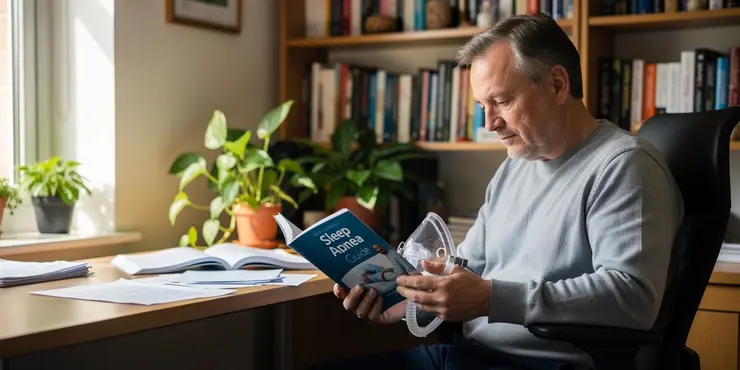
What is complex sleep apnea syndrome?
Relevance: 70%
-
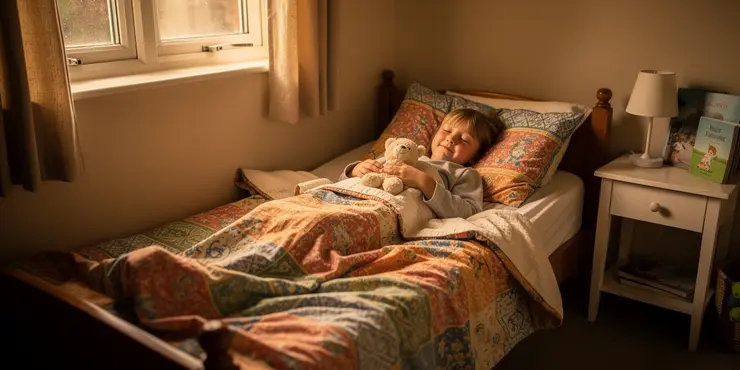
Can children have sleep apnea?
Relevance: 68%
-
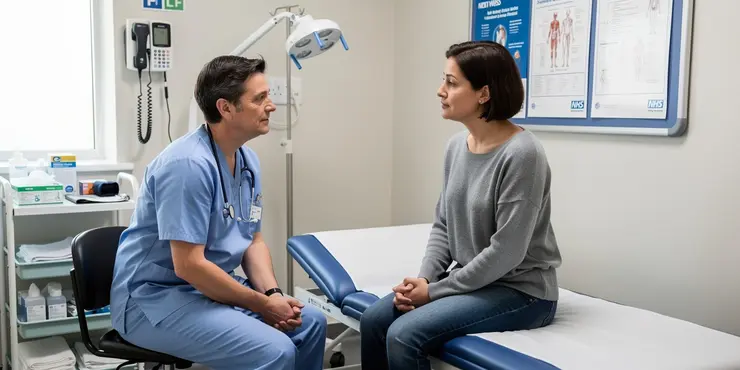
What should I do if I suspect I have sleep apnea?
Relevance: 67%
-
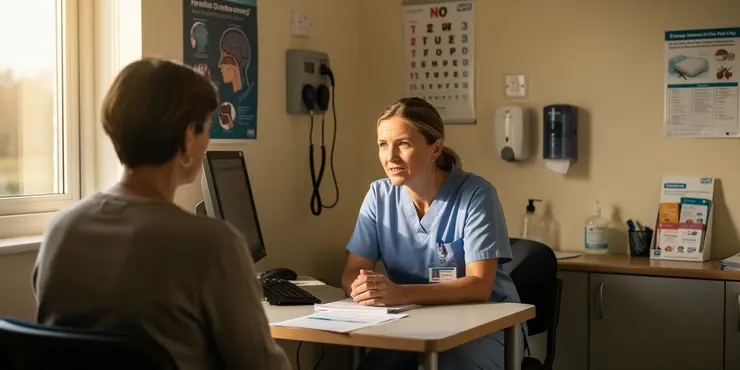
Does sleep apnea occur only in adults?
Relevance: 66%
-
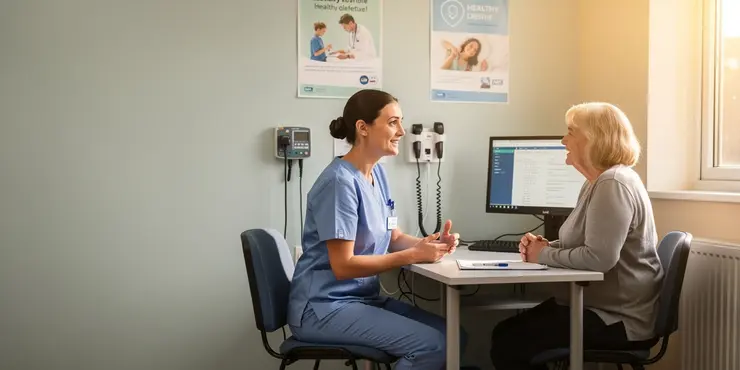
Can weight loss improve sleep apnea?
Relevance: 65%
-
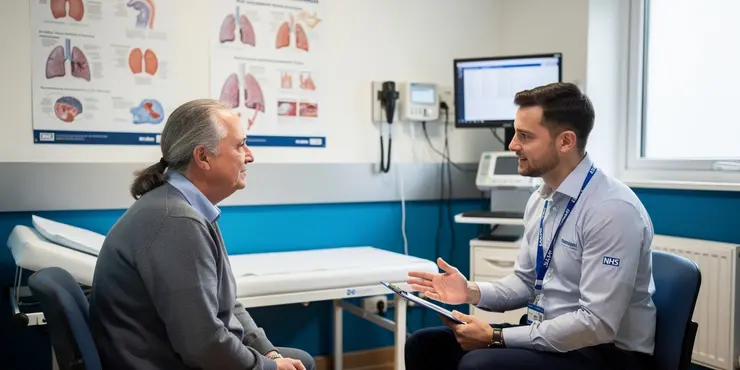
Am I eligible to try the new sleep apnea chip?
Relevance: 65%
-
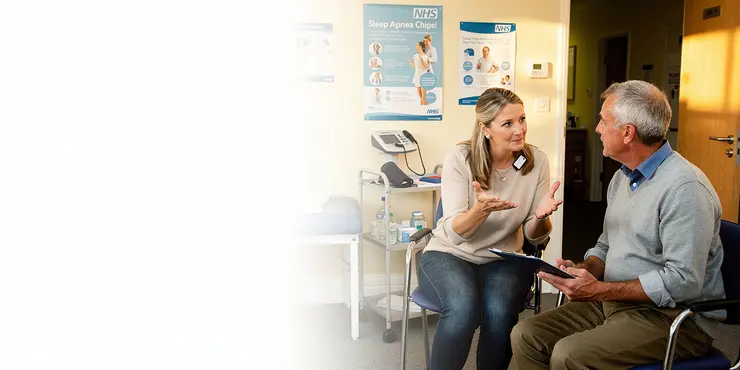
How does the new Sleep Apnea Chip work?
Relevance: 63%
-
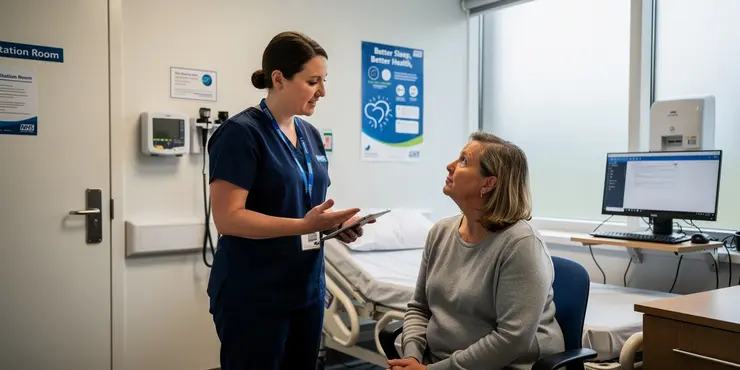
Introduction to obstructive sleep apnoea
Relevance: 56%
-
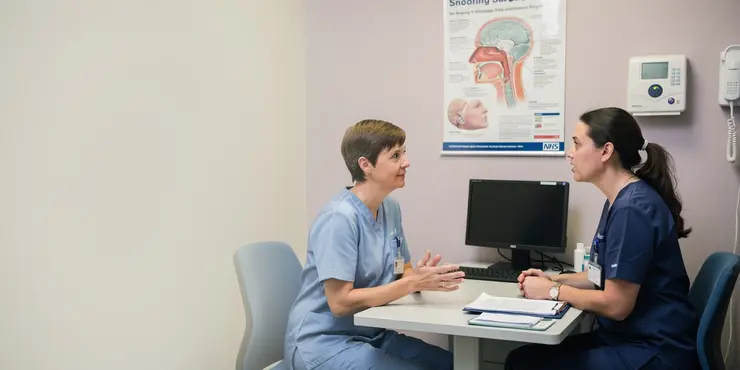
Evidence-Based Interventions: snoring surgery in the absence of Obstructive Sleep Apnoea (OSA)
Relevance: 51%
-
What is sleep apnoea?
Relevance: 38%
-
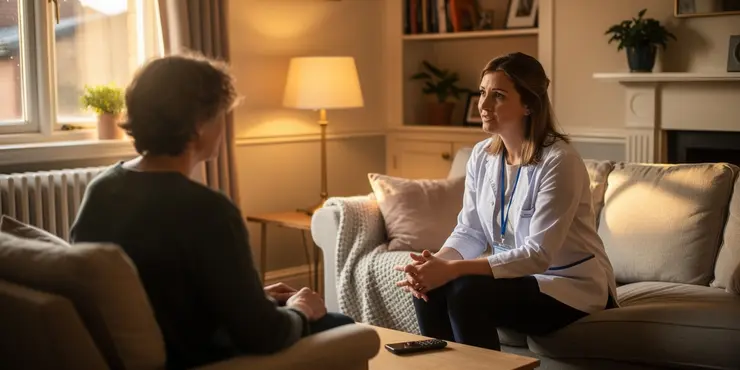
Top Tips to Help You Get a Good Nights Sleep
Relevance: 37%
-
What is alcohol poisoning?
Relevance: 36%
-
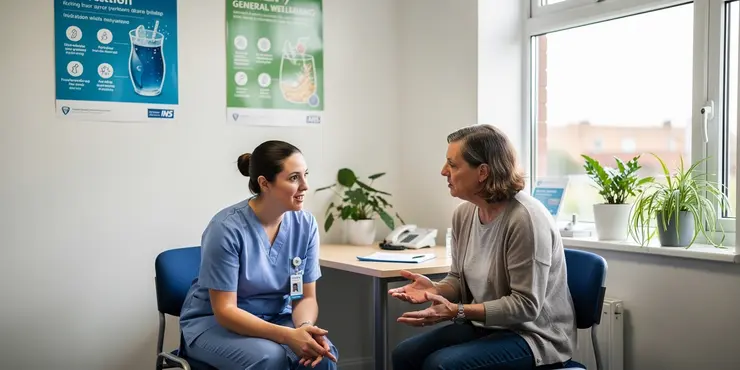
Should I avoid alcohol during a heatwave?
Relevance: 35%
-
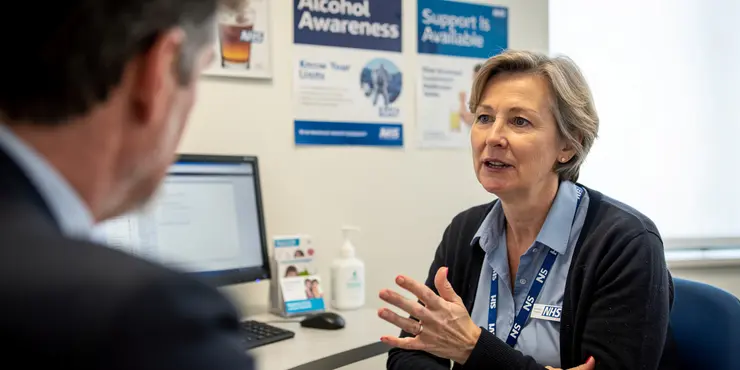
Alcohol Awarerness Week
Relevance: 35%
-
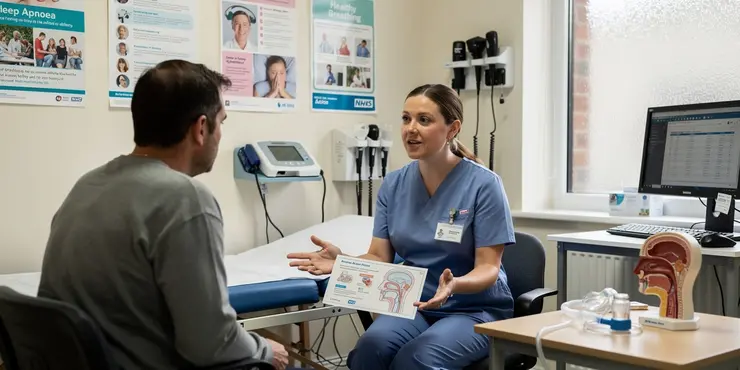
How does central sleep apnea differ from obstructive sleep apnea?
Relevance: 34%
-
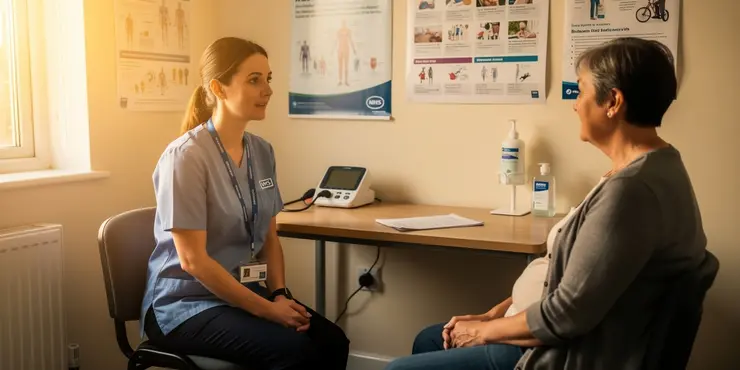
Is it possible for alcohol alone to cause similar symptoms?
Relevance: 34%
-
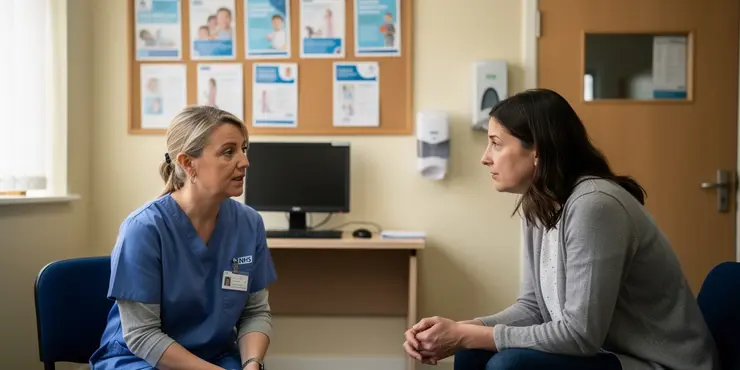
FASD Foetal alcohol
Relevance: 34%
-
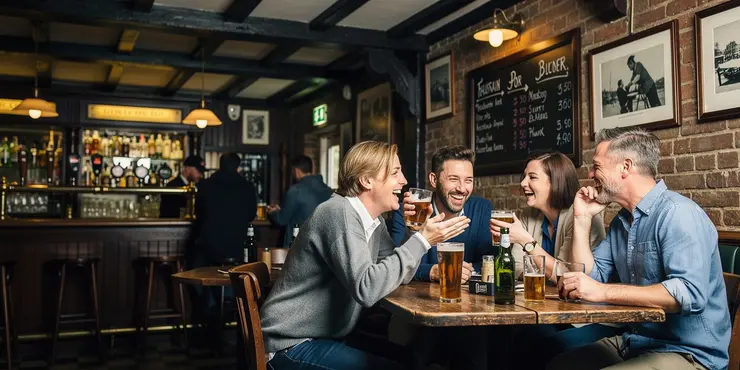
5 Facts about Alcohol and Britain
Relevance: 33%
-
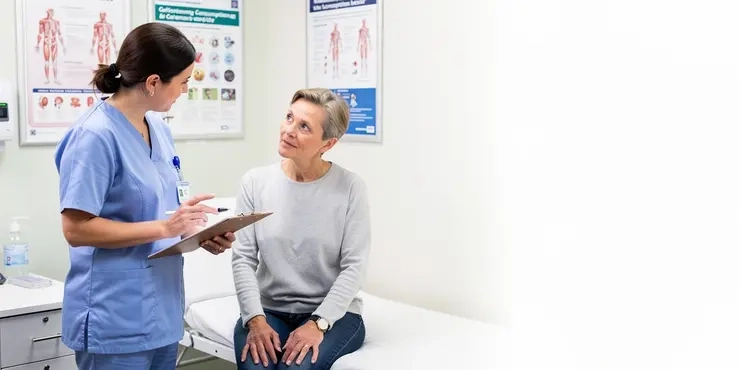
What is safe alcohol consumption in Adults?
Relevance: 32%
-
How does sleep quality relate to menopause symptoms?
Relevance: 31%
-
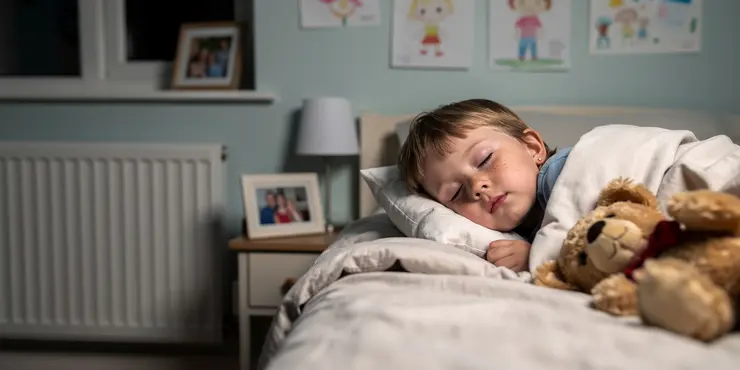
The Importance of Sleep for All Ages
Relevance: 31%
-
Can alcohol be consumed while taking Wegovy?
Relevance: 31%
-
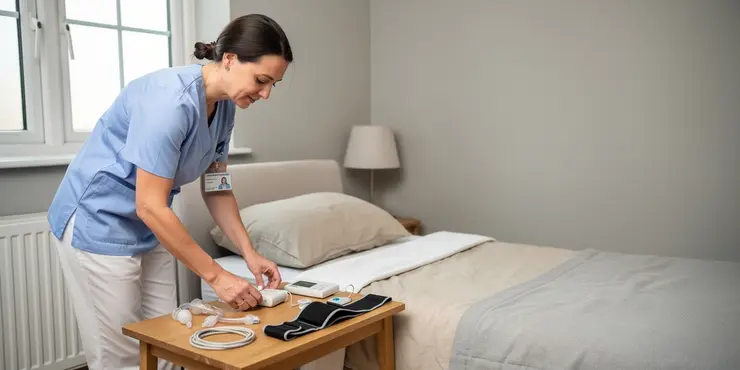
Instructions for setting up your home sleep study
Relevance: 30%
-
How does alcohol tolerance relate to binge drinking?
Relevance: 30%
Understanding Sleep Apnea
Sleep apnea is a common sleep disorder characterized by repeated interruptions in breathing during sleep. These interruptions, known as apneas, can last for several seconds and occur multiple times throughout the night. The most common form is obstructive sleep apnea (OSA), which occurs when the muscles in the throat relax excessively, blocking the airway. Central sleep apnea, though less common, involves the brain failing to send proper signals to the muscles that control breathing. Sleep apnea can lead to daytime fatigue, irritability, and difficulty concentrating, significantly affecting quality of life.
The Impact of Alcohol on Sleep
Alcohol is widely known for its sedative properties, and many people consume it to help them relax and fall asleep more easily. However, alcohol can disrupt sleep patterns by affecting the different stages of sleep. It initially acts as a sedative, enabling quicker sleep onset, but as the body metabolizes alcohol, it can lead to fragmented sleep, frequent awakenings, and a reduction in the overall quality of sleep. Moreover, alcohol can interfere with the rapid eye movement (REM) stage of sleep, which is essential for restorative sleep and cognitive function.
How Alcohol Worsens Sleep Apnea
Alcohol can significantly worsen the symptoms of sleep apnea. It relaxes the muscles of the throat and airway, increasing the likelihood of airway obstruction, which is a hallmark of obstructive sleep apnea. When the throat muscles relax too much, they can collapse during sleep, leading to more frequent and severe apneas. This can cause a drop in blood oxygen levels and disturb sleep continuity. For individuals with sleep apnea, consuming alcohol before bedtime can therefore exacerbate breathing irregularities and lead to more severe health implications.
Recommendations for Managing Sleep Apnea
For those diagnosed with sleep apnea, there are several strategies that can be employed to manage the condition effectively. Avoiding alcohol, especially in the hours leading up to bedtime, can help mitigate its exacerbating effects on sleep apnea. Other lifestyle modifications include maintaining a healthy weight, as excess weight can worsen airway obstruction, and sleeping on one's side instead of the back to prevent airway collapse. In some cases, continuous positive airway pressure (CPAP) therapy may be recommended by healthcare professionals to ensure a steady flow of air through the airway, improving sleep quality.
Conclusion
In conclusion, while alcohol might seem like a harmless nightcap, it can have detrimental effects on sleep apnea. Understanding the relationship between alcohol and sleep apnea is crucial for those affected by the disorder. By taking steps to limit alcohol consumption and follow medical advice, individuals with sleep apnea can improve their sleep quality and overall health. It is always advisable to consult with a healthcare professional for tailored advice and treatment options.
Understanding Sleep Apnea
Sleep apnea is a problem that happens during sleep. It makes you stop breathing for a few seconds many times at night. This can happen when your throat muscles relax too much and block the air going through. This is called obstructive sleep apnea (OSA). Sometimes, the brain doesn't send the right signals to the muscles to breathe. This is called central sleep apnea. Because of sleep apnea, you might feel tired, grumpy, or have trouble focusing during the day.
The Impact of Alcohol on Sleep
Many people drink alcohol because it helps them relax and fall asleep faster. But alcohol can actually disturb your sleep. It might help you fall asleep quickly, but later it can wake you up many times during the night. Alcohol can also mess up the important part of sleep called REM sleep, which makes you feel refreshed and helps your brain work well.
How Alcohol Worsens Sleep Apnea
Alcohol can make sleep apnea worse. It makes the throat muscles relax more, which can block the airway. This makes it harder to breathe and causes more sleep interruptions. If you have sleep apnea, drinking alcohol before bed can lead to more breathing problems and health issues.
Recommendations for Managing Sleep Apnea
If you have sleep apnea, there are things you can do to help. Try not to drink alcohol, especially before bed. Other helpful tips include keeping a healthy weight and sleeping on your side, not your back. This can help keep your airway open. Sometimes, doctors may suggest using a machine called CPAP to help you breathe better at night.
Conclusion
In short, alcohol might not be a good idea if you have sleep apnea. Understanding how alcohol affects sleep apnea is important. By drinking less alcohol and following your doctor's advice, you can sleep better and feel healthier. Always talk to a doctor for the best advice and treatment.
Frequently Asked Questions
What is sleep apnea?
Sleep apnea is a sleep disorder characterized by pauses in breathing or periods of shallow breathing during sleep.
Can alcohol cause sleep apnea?
While alcohol itself does not cause sleep apnea, it can worsen symptoms in people who already have the condition.
How does alcohol affect sleep apnea?
Alcohol relaxes the muscles of the throat, which can exacerbate airway obstruction during sleep in people with sleep apnea.
Does alcohol consumption before bed affect sleep quality?
Yes, alcohol consumption before bed can negatively impact sleep quality by disturbing sleep patterns and worsening sleep apnea symptoms.
Can reducing alcohol intake improve sleep apnea symptoms?
Reducing or eliminating alcohol consumption can help improve symptoms of sleep apnea by reducing muscle relaxation in the throat.
How soon before bedtime should I avoid alcohol to prevent sleep apnea symptoms?
It is generally recommended to avoid alcohol at least 3-4 hours before bedtime to minimize its impact on sleep apnea symptoms.
Is wine or beer safer than liquor for someone with sleep apnea?
All types of alcohol can worsen sleep apnea, so the effect is generally related to quantity rather than the type of alcoholic beverage.
Can alcohol affect the use of a CPAP machine?
Alcohol can impair the effectiveness of CPAP therapy by exacerbating airway obstruction, even if a CPAP machine is used.
Why does alcohol relaxation of throat muscles matter for sleep apnea?
Relaxation of throat muscles can lead to increased airway obstruction, worsening the hypopneas and apneas experienced in sleep apnea.
Are there any safe drinking limits for people with sleep apnea?
People with sleep apnea should be cautious with alcohol consumption; consulting with a healthcare provider for personalized advice is best.
Does chronic alcohol use lead to sleep apnea?
Chronic heavy alcohol use can lead to weight gain and obesity, which are risk factors for the development of sleep apnea.
Can alcohol withdrawal affect sleep apnea?
Alcohol withdrawal can temporarily worsen sleep apnea symptoms due to the body's adjustment to the absence of alcohol.
Should people with sleep apnea avoid alcohol completely?
While complete abstinence is ideal, moderation and proper timing of alcohol consumption may help mitigate its impact on sleep apnea.
Can alcohol worsen snoring in sleep apnea patients?
Yes, alcohol can increase snoring activity by relaxing the throat muscles, which can contribute to enhanced airway resistance.
How does alcohol influence REM sleep in sleep apnea?
Alcohol can suppress REM sleep initially but may cause rebound REM later in the night, leading to fragmented sleep and worsened apnea events.
Is it dangerous for people with severe sleep apnea to drink alcohol?
Yes, it can be particularly dangerous as it may significantly increase the severity and frequency of apneic events, increasing health risks.
Does alcohol affect everyone with sleep apnea similarly?
Alcohol's effects can vary, but it's generally more likely to worsen symptoms in people with existing airway obstructions due to sleep apnea.
Can occasional drinking still affect sleep apnea?
Even occasional drinking, especially close to bedtime, can have a significant impact on sleep apnea symptoms.
What are alternative relaxation methods before bed for those with sleep apnea?
Safer alternatives include reading, taking a warm bath, and practicing relaxation techniques such as meditation or deep breathing exercises.
How can I get more information on managing sleep apnea with lifestyle changes?
Consult with a healthcare provider or sleep specialist who can offer tailored advice on managing sleep apnea, including lifestyle modifications.
What is sleep apnea?
Sleep apnea is a problem that happens when you sleep. It makes you stop breathing for short times. This can make you very tired during the day.
If you find it hard to understand, you can ask someone you trust to explain it to you. Watching a video about sleep apnea can also make it easier to understand.
Sleep apnea is a problem when you sleep. It makes you stop breathing or breathe very lightly when you are sleeping.
Does alcohol make it hard to breathe when you sleep?
Alcohol does not directly cause sleep apnea. But if someone has sleep apnea, alcohol can make their symptoms worse.
How does drinking alcohol change sleep apnea?
Drinking alcohol can make sleep apnea worse. Sleep apnea is when you stop breathing for a short time while sleeping.
Alcohol makes your throat muscles relax too much, which can block your airway. This makes it harder to breathe when you sleep.
Try not to drink alcohol before bedtime. This can help you breathe better while you sleep.
For extra help, you can:
- Use a CPAP machine. This helps keep your airway open.
- Sleep on your side. It can make breathing easier.
- Talk to your doctor. They can give you more tips.
Alcohol makes the throat muscles relax. This can make it harder to breathe at night for people who have trouble with sleep apnea.
Does drinking alcohol before bed change how well you sleep?
Does having a drink before going to bed change your sleep?
Here is what you should know:
- Drinking alcohol can make you feel sleepy at first. But, it might not help you sleep well all night.
- Alcohol can stop you from getting deep, restful sleep.
- You might wake up more during the night after drinking.
Helpful tools:
- Try to have your last drink at least a few hours before bedtime.
- Use a sleep app to track how well you are sleeping.
- Ask someone you trust for advice about drinking less alcohol.
Drinking alcohol before bedtime can make your sleep worse. It can mess up how you sleep and make breathing problems like sleep apnea bad.
Can drinking less alcohol help with sleep apnea?
Drinking less alcohol or stopping completely can help you sleep better if you have sleep apnea. It stops the throat muscles from relaxing too much.
When should I stop drinking alcohol before going to bed to help with sleep problems?
If you have trouble sleeping, it is good to stop drinking alcohol before bed. Try to stop at least a few hours before you go to sleep. Using this tip can help you sleep better.
Tools like alarms or reminders can help you remember not to drink alcohol before bedtime.
It’s a good idea to stop drinking alcohol at least 3-4 hours before you go to bed. This can help your sleep get better and make breathing easier if you have sleep apnea.
Is wine or beer safer than liquor for people who have trouble sleeping and breathing?
If you have trouble sleeping and breathing at night, you might wonder about drinking. Here is some help.
It is good to be careful with any alcohol if you have sleep problems.
Wine, beer, and liquor can all make sleep troubles worse.
Some people find it better to drink less or not at all.
If you need help, talk to a doctor or a nurse.
They can tell you what is safe for you.
Drinking alcohol can make sleep apnea worse. It does not matter what kind of alcohol you drink. The more alcohol you drink, the worse it can be.
Does drinking alcohol change how a CPAP machine works?
Alcohol can make it harder for a CPAP machine to work. It can block the airways even more, even if you use the machine.
Why is it important that alcohol makes throat muscles relax for people with sleep apnea?
Alcohol can make the muscles in your throat relax. This is important for people with sleep apnea because it can make their breathing problems worse when they sleep.
If you have sleep apnea, try to avoid drinking alcohol before bed. It can help you breathe better at night.
Here are some tools and tips to help you:
- Use a breathing machine at night called CPAP to keep your airways open.
- Try to sleep on your side instead of your back.
- Talk to a doctor about other ways to help your sleep apnea.
When the muscles in your throat relax too much, it can block your airway. This makes it hard to breathe when you are sleeping. This problem is called sleep apnea.
Can people with sleep apnea drink alcohol safely?
If you have sleep apnea, it's best to be careful with alcohol. Alcohol can make sleep apnea worse.
It is good to ask your doctor or nurse how much is safe for you to drink.
Using a CPAP machine at night can help with sleep apnea.
If you're thinking about drinking, ask a family member or friend for support.
If you have sleep apnea, it's important to be careful with drinking alcohol. It is a good idea to talk to your doctor for advice that is just right for you.
Does drinking alcohol a lot cause sleep problems?
Drinking alcohol often might cause sleep problems. One sleep problem is called sleep apnea. Sleep apnea means you stop breathing for short times while you sleep.
If you or someone you know drinks alcohol a lot and has trouble sleeping, it is a good idea to talk to a doctor. They can help figure out what is going on and what to do next.
Tools that can help:
- Use a sleep diary to track sleeping patterns.
- Try relaxing bedtime routines like reading a story or listening to calm music.
- Get information from websites or support groups about sleep problems.
Drinking a lot of alcohol all the time can make you put on weight. Being too heavy can cause health problems like sleep apnea.
Can stopping drinking alcohol change sleep problems?
When someone stops drinking alcohol, it can make sleep apnea worse for a little while. This happens because the body is getting used to not having alcohol.
Is it okay for people with sleep apnea to drink alcohol?
People with a condition called sleep apnea should be careful with alcohol. It can make sleep apnea worse. Alcohol makes the muscles in your throat relax too much, which can block air and cause problems breathing. It is a good idea for people with sleep apnea to talk to a doctor about drinking alcohol. Your doctor can give advice that is right for you.
Here are some tips:
- Talk to your doctor about alcohol and sleep apnea.
- If you do drink, try to drink less and not right before bed.
- Use tools like CPAP machines to help you breathe better while sleeping.
- Learn more about sleep apnea and how to manage it.
Remember, being safe is the most important thing.
It is best not to drink alcohol, but if you do, try to drink less and at the right times to help with sleep apnea.
Does drinking alcohol make snoring worse for people with sleep apnea?
If you drink alcohol, does it make snoring louder for people with sleep apnea?
Sleep apnea is when someone stops breathing for short times when they are sleeping.
Snoring is the loud noise some people make when they sleep. Alcohol can relax the muscles in the throat too much, making snoring louder.
Tools to help:
- Speak to a doctor for advice.
- Try sleeping on your side, not your back.
- Use special pillows that help with snoring.
Yes, drinking alcohol can make you snore more. It makes the muscles in your throat relax. This can make it harder to breathe.
How does drinking alcohol affect breathing problems during sleep?
Drinking alcohol can change how you sleep. At first, it can stop a special part of sleep called REM. But later in the night, it can make this part of sleep happen more, which makes your sleep choppy and can make breathing problems worse.
If you need help with reading, you can use audiobooks or apps that help you read out loud.
Is it safe for people who have serious sleep problems to drink alcohol?
People who have bad sleep problems like sleep apnea should be careful with alcohol. Alcohol can make sleep problems worse.
Here are some tips to help:
- Talk to a doctor if you have sleep worries.
- Try not to drink alcohol, especially before bedtime.
- Use apps or alarms to remind you not to drink.
- Ask someone you trust if you need help or support.
Yes, it can be very dangerous. It can make breathing problems happen more often and make them worse. This can be bad for your health.
Does alcohol change sleep for everyone with sleep apnea the same way?
People with sleep apnea might have trouble sleeping after drinking alcohol. But not everyone feels the same. It's different for each person.
If you have sleep apnea and drink alcohol, it is good to:
- Talk to a doctor.
- Use apps to track your sleep.
- Ask family or friends for support.
Alcohol can change how we feel. If someone has trouble breathing because of sleep problems like sleep apnea, alcohol might make it worse.
Does drinking alcohol sometimes affect sleep apnea?
Drinking alcohol, even just a little, can make sleep apnea worse. Sleep apnea is when you have trouble breathing while you sleep. Alcohol can relax the muscles in your throat, which can cause more breathing problems at night.
If you have sleep apnea, it's good to be careful with alcohol. Try drinking less or not at all. This can help you breathe better when you sleep.
If reading is hard, you can:
- Ask someone to read the text aloud to you.
- Use a reading app that can read the text out loud for you.
- Practice reading with short and simple sentences.
Drinking alcohol, even just sometimes, especially before bed, can make sleep apnea worse.
What are other ways to relax before bed if you have sleep apnea?
If you have sleep apnea, here are some easy ways to relax before bed:
- Deep breathing: Take slow, deep breaths. Breathe in through your nose and out through your mouth.
- Gentle stretching: Move your arms and legs gently to help your body feel calm.
- Peaceful music: Listen to soft music that makes you feel calm and happy.
- Warm bath: Take a warm bath to relax your muscles.
- Reading a nice book: Choose a book that is fun and not scary to help you feel sleepy.
These tips can help calm your body and mind before sleeping. You can try one or more to see what works best for you.
Instead of using things that aren't safe, you can try these activities:
- Read a book.
- Take a warm bath.
- Try to relax by doing things like meditation or deep breathing.
These can help you feel calm and happy!
How can I learn more about managing sleep apnea by changing my habits?
If you want to know more about sleep apnea and how to help it, here are some things you can try:
- Talk to a doctor. They can give you advice and tell you what might help.
- Read books about sleep apnea. A library or online can help you find them.
- Look for videos online. Some videos explain things in a simple way.
- Join a support group. Talking to others with sleep apnea can help.
Using tools like audiobooks or videos can make learning easier. If you have trouble reading, you can ask someone to help you understand.
Talk to a doctor or sleep expert. They can help you with sleep problems and give you advice on how to sleep better. They might suggest changes to your daily habits to help you improve your sleep.
Useful Links
This website offers general information and is not a substitute for professional advice.
Always seek guidance from qualified professionals.
If you have any medical concerns or need urgent help, contact a healthcare professional or emergency services immediately.
Some of this content was generated with AI assistance. We’ve done our best to keep it accurate, helpful, and human-friendly.
- Ergsy carfully checks the information in the videos we provide here.
- Videos shown by Youtube after a video has completed, have NOT been reviewed by ERGSY.
- To view, click the arrow in centre of video.
- Most of the videos you find here will have subtitles and/or closed captions available.
- You may need to turn these on, and choose your preferred language.
- Go to the video you'd like to watch.
- If closed captions (CC) are available, settings will be visible on the bottom right of the video player.
- To turn on Captions, click settings .
- To turn off Captions, click settings again.
More Items From Ergsy search
-

Can alcohol worsen sleep apnea?
Relevance: 100%
-

What is sleep apnea?
Relevance: 79%
-

What is sleep apnoea?
Relevance: 78%
-

How common is sleep apnea?
Relevance: 78%
-

Is snoring always a sign of sleep apnea?
Relevance: 76%
-

Is CPAP the only treatment for sleep apnea?
Relevance: 75%
-

What are risk factors for developing sleep apnea?
Relevance: 75%
-

What treatments are available for sleep apnea?
Relevance: 75%
-

Can sleep apnea be cured?
Relevance: 74%
-

What causes obstructive sleep apnea?
Relevance: 74%
-

What is complex sleep apnea syndrome?
Relevance: 73%
-

Why is sleep apnea dangerous?
Relevance: 71%
-

How is sleep apnea diagnosed?
Relevance: 71%
-

What are the main types of sleep apnea?
Relevance: 71%
-

What lifestyle changes can help manage sleep apnea?
Relevance: 70%
-

What are common symptoms of sleep apnea?
Relevance: 70%
-

What is complex sleep apnea syndrome?
Relevance: 70%
-

Can children have sleep apnea?
Relevance: 68%
-

What should I do if I suspect I have sleep apnea?
Relevance: 67%
-

Does sleep apnea occur only in adults?
Relevance: 66%
-

Can weight loss improve sleep apnea?
Relevance: 65%
-

Am I eligible to try the new sleep apnea chip?
Relevance: 65%
-

How does the new Sleep Apnea Chip work?
Relevance: 63%
-

Introduction to obstructive sleep apnoea
Relevance: 56%
-

Evidence-Based Interventions: snoring surgery in the absence of Obstructive Sleep Apnoea (OSA)
Relevance: 51%
-
What is sleep apnoea?
Relevance: 38%
-

Top Tips to Help You Get a Good Nights Sleep
Relevance: 37%
-
What is alcohol poisoning?
Relevance: 36%
-

Should I avoid alcohol during a heatwave?
Relevance: 35%
-

Alcohol Awarerness Week
Relevance: 35%
-

How does central sleep apnea differ from obstructive sleep apnea?
Relevance: 34%
-

Is it possible for alcohol alone to cause similar symptoms?
Relevance: 34%
-

FASD Foetal alcohol
Relevance: 34%
-

5 Facts about Alcohol and Britain
Relevance: 33%
-

What is safe alcohol consumption in Adults?
Relevance: 32%
-
How does sleep quality relate to menopause symptoms?
Relevance: 31%
-

The Importance of Sleep for All Ages
Relevance: 31%
-
Can alcohol be consumed while taking Wegovy?
Relevance: 31%
-

Instructions for setting up your home sleep study
Relevance: 30%
-
How does alcohol tolerance relate to binge drinking?
Relevance: 30%


